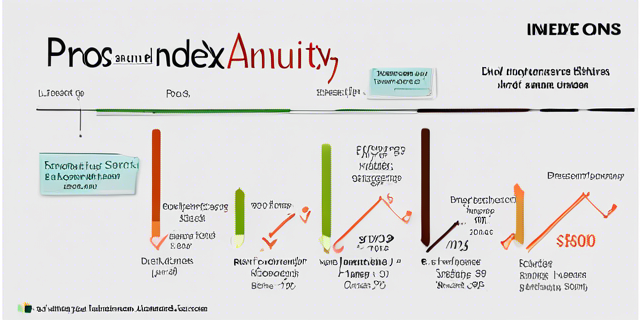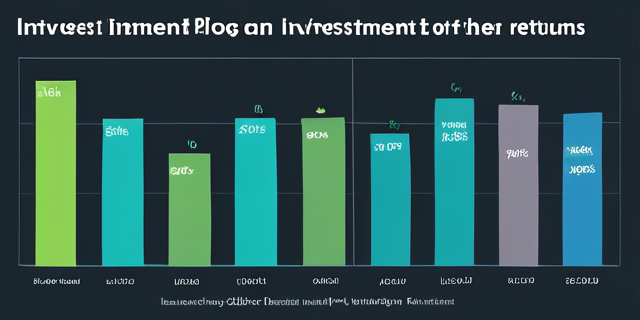Navigating Annuity Inheritance Rules 2024: A Comprehensive Guide

Annuities can be a valuable tool for securing a steady stream of retirement income. However, when it comes to inheritance, the rules surrounding annuities can be complex and often misunderstood. Whether you’re the owner of an annuity or a potential beneficiary, understanding the inheritance rules is crucial to ensure your assets are properly distributed according to your wishes.
In this comprehensive guide, we’ll dive deep into the intricate world of annuity inheritance rules, equipping you with the knowledge you need to make informed decisions and navigate this process with confidence.
Understanding Annuity Basics
Before we delve into the inheritance rules, it’s essential to have a basic understanding of annuities themselves. An annuity is a contract between an individual and an insurance company, where the individual (the annuitant) contributes a lump sum or periodic payments, and in return, the insurance company agrees to provide a stream of income, either immediately or at a future date.
There are two main types of annuities:
1. Deferred Annuities
With a deferred annuity, the annuitant contributes funds over time, allowing them to grow tax-deferred until they reach retirement age. At that point, the accumulated funds can be converted into a stream of income payments.
2. Immediate Annuities
An immediate annuity involves a single lump sum payment to the insurance company, which then starts providing a stream of income payments right away or within a short period of time.
Annuity Inheritance Rules: The Basics
When it comes to inheriting an annuity, the rules can vary depending on several factors, including the type of annuity, the contract terms, and the beneficiary’s relationship to the annuitant. Here are some general guidelines:
1. Named Beneficiaries
Most annuity contracts allow the annuitant to name one or more beneficiaries who will inherit the remaining value of the annuity upon the annuitant’s death. The beneficiary can be a spouse, child, other family member, or even a non-relative.
2. Spousal Beneficiaries
If the named beneficiary is the annuitant’s spouse, they typically have several options for inheriting the annuity:
- Continue receiving the remaining income payments
- Cash out the annuity and receive the lump sum value
- Roll over the annuity into their own retirement account, allowing for continued tax-deferred growth
3. Non-Spousal Beneficiaries
For non-spousal beneficiaries, the options may be more limited. In most cases, they will need to take a lump sum distribution, which will be subject to income taxes. However, they may have the option to transfer the annuity into an “Inherited IRA” account, allowing for continued tax-deferred growth and stretched-out distributions.
4. No Named Beneficiary
If the annuitant fails to name a beneficiary, the annuity will typically become part of their estate and be subject to probate laws. The value of the annuity may then be distributed according to the annuitant’s will or state inheritance laws.
Inheriting a Deferred Annuity

When inheriting a deferred annuity, the rules can be a bit more complex. Here are some key considerations:
1. Taxation of Inherited Deferred Annuities
The taxation of an inherited deferred annuity depends on the type of account it was originally held in:
- Qualified Accounts (IRAs, 401(k)s): Distributions from inherited qualified accounts are subject to ordinary income tax rates.
- Non-Qualified Accounts: Only the earnings portion of the distribution is subject to income tax. The initial investment amount is considered a return of principal and is not taxed.
2. Required Minimum Distributions (RMDs)
If the deferred annuity was held in a qualified account, the beneficiary may be required to take minimum distributions each year, based on their life expectancy. Failure to take RMDs can result in steep penalties.
3. Stretch Provisions
Some annuity contracts include “stretch” provisions, which allow non-spousal beneficiaries to take distributions over their own life expectancy, potentially minimizing the tax impact and maximizing the tax-deferred growth potential.
Inheriting an Immediate Annuity

The rules for inheriting an immediate annuity are generally more straightforward:
1. Income Stream Continuation
If the annuitant dies before the guaranteed period of income payments has elapsed, the named beneficiary can typically continue receiving the remaining payments for the guaranteed period.
2. Lump Sum Distribution
In some cases, the beneficiary may have the option to take a lump sum distribution equal to the present value of the remaining guaranteed income payments.
3. Taxation of Inherited Immediate Annuities
The taxation of inherited immediate annuity payments depends on the type of account from which the initial premium was paid:
- Qualified Accounts: The entire income payment is subject to ordinary income tax rates.
- Non-Qualified Accounts: Only the portion representing earnings is taxed as ordinary income. The initial investment amount is considered a return of principal and is not taxed.
Special Considerations for Spouses
Spouses often have additional options and advantages when inheriting an annuity, thanks to special tax rules and provisions. Here are some key considerations:
1. Spousal Rollover
If the annuity was held in a qualified account, such as an IRA or 401(k), the surviving spouse can typically roll over the inherited annuity into their own retirement account. This allows for continued tax-deferred growth and avoids immediate taxation.
2. Spousal Continuance
Some annuity contracts allow the surviving spouse to simply continue receiving the remaining income payments, without needing to take a lump sum distribution or roll over the annuity.
3. Spousal Beneficiary Treatment
In certain cases, the surviving spouse may be treated as the original owner of the annuity, rather than just a beneficiary. This can provide additional flexibility and options for managing the annuity.
Estate Planning and Annuities
Annuities can play an important role in estate planning, and understanding how they fit into your overall plan is crucial. Here are some key considerations:
1. Avoiding Probate
By naming a beneficiary for your annuity, the assets can bypass the probate process, potentially saving time and money for your heirs.
2. Providing Income for Loved Ones
Annuities can be structured to provide a guaranteed income stream for your spouse, children, or other beneficiaries, ensuring their financial security after you’re gone.
3. Charitable Giving
Some annuity contracts allow you to name a charitable organization as a beneficiary, providing a way to support causes you care about while potentially minimizing your tax burden.
4. Trusts and Annuities
In certain situations, it may be advantageous to name a trust as the beneficiary of your annuity, allowing for greater control and customization of how the assets are distributed and managed.
Updating Beneficiary Designations
As life circumstances change, it’s crucial to regularly review and update your annuity beneficiary designations. Here are some key considerations:
1. Life Events
Major life events, such as marriage, divorce, birth of a child, or the death of a loved one, may warrant a change in your beneficiary designations.
2. Coordinating with Estate Plan
Ensure your annuity beneficiary designations are consistent with your overall estate plan, including your will, trusts, and other financial accounts.
3. Primary and Contingent Beneficiaries
Most annuity contracts allow you to name both primary and contingent beneficiaries, ensuring your assets are distributed according to your wishes, even if your primary beneficiary predeceases you.
4. Periodic Review
Set a reminder to review and update your beneficiary designations periodically, even if no major life events have occurred. This can help ensure your wishes are accurately reflected and avoid potential complications or disputes.
Seeking Professional Guidance
Navigating the complex world of annuity inheritance rules can be challenging, and seeking professional guidance is often advisable. Here are some reasons why consulting with a qualified professional can be beneficial:
1. Tax Implications
Inheriting an annuity can have significant tax implications, and a financial advisor or tax professional can help you understand the potential impact and develop strategies to minimize your tax burden.
2. Estate Planning Integration
An estate planning attorney can ensure your annuity inheritance plan is properly integrated with your overall estate plan, minimizing potential conflicts or unintended consequences.
3. Beneficiary Designation Review
A financial advisor or estate planning professional can review your beneficiary designations and ensure they accurately reflect your wishes and are consistent with your overall financial and estate planning goals.
4. Complex Situations
In cases involving trusts, special needs beneficiaries, or other complex scenarios, seeking guidance from experienced professionals can be invaluable in navigating the intricate rules and regulations.
While seeking professional advice may come with additional costs, the potential benefits of properly managing your annuity inheritance and avoiding costly mistakes can often outweigh the upfront expenses.
Conclusion
Understanding annuity inheritance rules is crucial for ensuring your assets are distributed according to your wishes and minimizing potential complications or disputes. By navigating the complexities of named beneficiaries, spousal considerations, taxation, and estate planning integration, you can make informed decisions and provide for your loved ones in the most effective manner possible.
Remember, annuity inheritance rules can be nuanced and subject to change, so it’s essential to stay informed and seek professional guidance when necessary. With proper planning and a thorough understanding of the rules, you can ensure your annuity assets serve their intended purpose and provide financial security for those who matter most.
Frequently Asked Questions (FAQs)
1. Can I name multiple beneficiaries for my annuity?
Yes, most annuity contracts allow you to name multiple primary and contingent beneficiaries. This can be useful if you want to distribute your annuity assets among several individuals or organizations.
2. What happens if I don’t name a beneficiary for my annuity?
If you fail to name a beneficiary for your annuity, the assets will typically become part of your estate and be subject to probate laws. The value of the annuity may then be distributed according to your will or state inheritance laws, which may not align with your intended wishes.
3. Can I change the beneficiary designation on my annuity?
Yes, most annuity contracts allow you to change your beneficiary designation at any time. It’s generally recommended to review and update your beneficiary designations periodically, especially after major life events such as marriage, divorce, or the birth or death of a loved one.
4. Are there any special considerations for inheriting an annuity in a trust?
Yes, inheriting an annuity through a trust can have additional complexities and considerations. It’s advisable to work with an experienced estate planning attorney or financial advisor to ensure the trust is structured properly and the annuity assets are managed and distributed according to your wishes.
5. How do the annuity inheritance rules differ for qualified and non-qualified accounts?
The inheritance rules for annuities held in qualified accounts (such as IRAs and 401(k)s) differ from those held in non-qualified accounts. Qualified accounts are subject to required minimum distributions (RMDs) and ordinary income tax rates upon distribution, while non-qualified accounts may have more favorable tax treatment for the initial investment amount.








